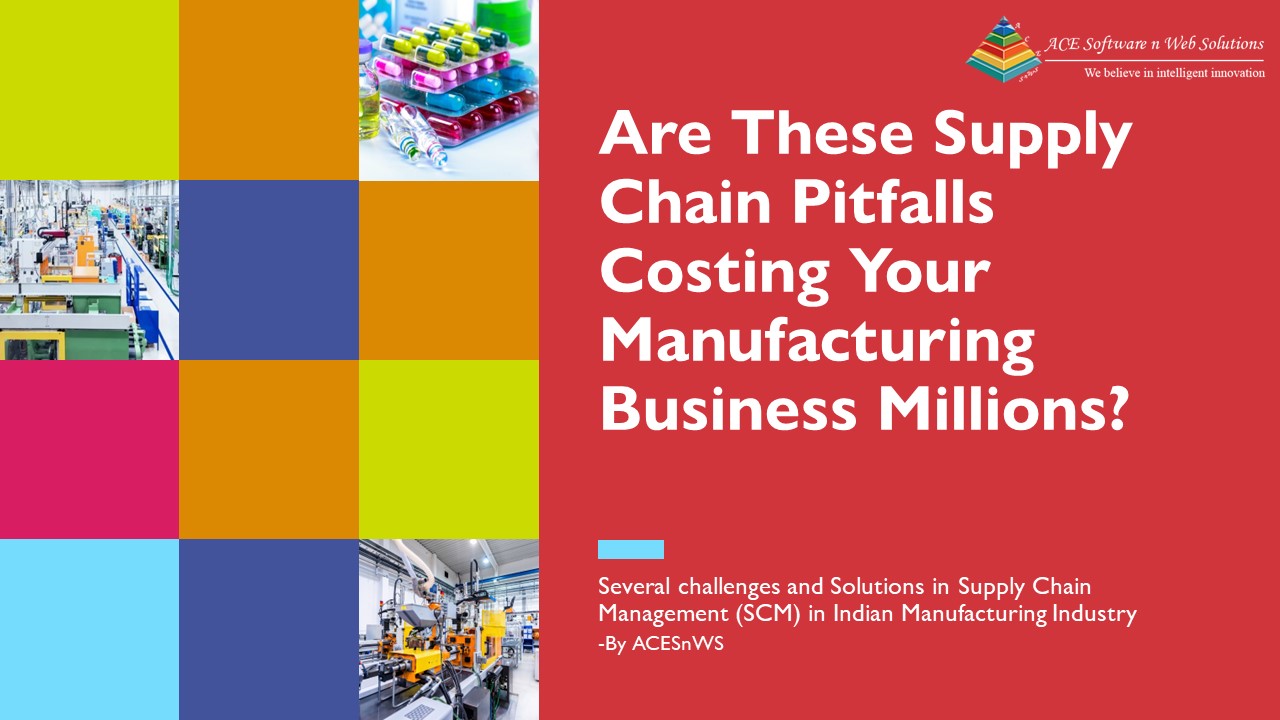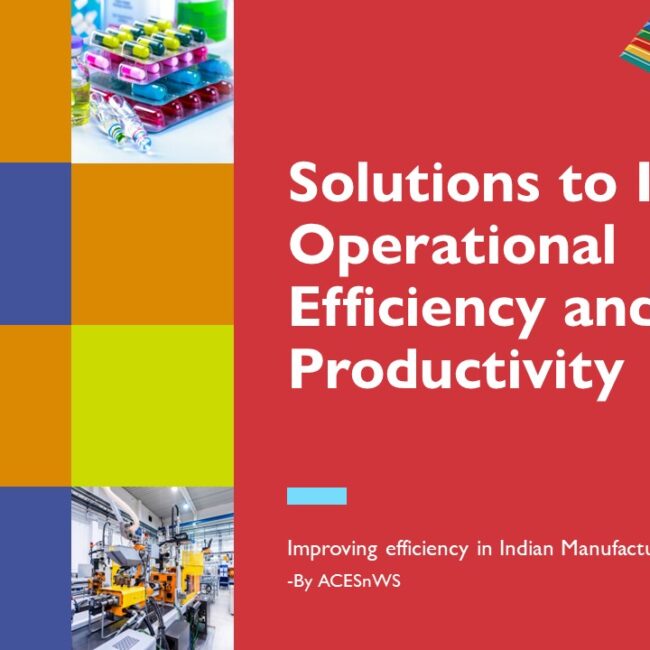
Are These 7 Supply Chain Pitfalls Costing Your Manufacturing Business Millions?
CEOs of manufacturing companies in India with turnovers ranging from 10 crores (Cr) to 50 crores face several challenges in Supply Chain Management (SCM). These challenges can significantly impact their operations, profitability, and growth. Here are some common SCM problems they face, their impacts, and potential solutions:
1. Demand Forecasting and Inventory Management
Impact:
- Overstocking: Leads to increased holding costs and potential obsolescence.
- Stockouts: Results in missed sales opportunities and dissatisfied customers.
- Cash Flow Issues: Mismanaged inventory ties up capital that could be used for other business operations.
Solutions:
- Implement Advanced Analytics: Use predictive analytics and machine learning to improve demand forecasting accuracy.
- Adopt Just-in-Time (JIT) Inventory: Reduces inventory holding costs and minimizes waste.
- Collaborate with Suppliers: Share sales data and forecasts to align production and inventory levels.
2. Supplier Management
Impact:
- Supplier Reliability: Inconsistent supply can lead to production delays and increased lead times.
- Quality Issues: Poor-quality raw materials can result in defective products and increased returns.
- Cost Fluctuations: Unpredictable supplier pricing can impact the company’s margins.
Solutions:
- Develop Strategic Partnerships: Build long-term relationships with reliable suppliers to ensure consistent quality and supply.
- Diversify Supplier Base: Reduce dependency on a single supplier to mitigate risks associated with supply disruptions.
- Negotiate Long-term Contracts: Secure better pricing and stability through long-term agreements with key suppliers.
3. Logistics and Transportation
Impact:
- High Transportation Costs: Increases overall supply chain costs and reduces profit margins.
- Delivery Delays: Affects customer satisfaction and can lead to lost sales.
- Inefficient Routing: Results in higher fuel consumption and longer delivery times.
Solutions:
- Optimize Transportation Routes: Use route optimization software to reduce travel time and fuel consumption.
- Leverage Third-Party Logistics (3PL): Outsource logistics to specialized providers to benefit from their expertise and economies of scale.
- Invest in Technology: Use GPS tracking and real-time data analytics to improve logistics efficiency and responsiveness.
4. Regulatory Compliance
Impact:
- Penalties and Fines: Non-compliance with regulations can result in financial penalties and legal issues.
- Disruption in Operations: Regulatory inspections and compliance issues can halt production and affect the supply chain.
- Reputation Damage: Non-compliance can harm the company’s reputation and customer trust.
Solutions:
- Stay Updated on Regulations: Regularly monitor and review regulatory changes affecting the supply chain.
- Implement Compliance Programs: Establish internal processes and training to ensure adherence to regulations.
- Hire Compliance Experts: Engage professionals who specialize in regulatory compliance to navigate complex legal requirements.
5. Technology Integration
Impact:
- Lack of Visibility: Poor integration of technology can lead to fragmented data and lack of real-time visibility across the supply chain.
- Inefficiencies: Manual processes are prone to errors and slow down operations.
- Competitive Disadvantage: Falling behind in technology adoption can make it difficult to compete with more technologically advanced competitors.
Solutions:
- Adopt Supply Chain Management Software: Implement SCM systems to automate and integrate supply chain processes.
- Use IoT and RFID: Improve tracking and monitoring of inventory and assets in real time.
- Invest in ERP Systems: Integrate SCM with enterprise resource planning (ERP) systems for better data flow and decision-making.
6. Risk Management
Impact:
- Supply Chain Disruptions: Natural disasters, political instability, or pandemics can disrupt the supply chain and halt operations.
- Financial Losses: Unmanaged risks can lead to significant financial losses and business continuity issues.
- Loss of Customer Trust: Frequent disruptions can lead to loss of customer trust and loyalty.
Solutions:
- Develop a Risk Management Plan: Identify potential risks and develop mitigation strategies.
- Diversify Supply Chain: Source from multiple regions and suppliers to reduce the impact of localized disruptions.
- Build Resilience: Invest in supply chain resilience strategies, such as safety stock and alternative transportation routes.
7. Sustainability and Ethical Practices
Impact:
- Reputation Risks: Non-compliance with sustainability and ethical standards can harm the company’s reputation.
- Customer Demand: Increasing consumer demand for sustainable and ethically produced goods.
- Regulatory Pressure: Growing regulations related to environmental and social governance.
Solutions:
- Implement Sustainable Practices: Adopt environmentally friendly practices and reduce carbon footprint across the supply chain.
- Monitor Supplier Practices: Ensure suppliers adhere to ethical and sustainability standards.
- Engage in Corporate Social Responsibility (CSR): Promote CSR initiatives to enhance brand reputation and customer loyalty.
Conclusion
Effective supply chain management is crucial for the success of manufacturing companies in India with turnovers between 10 Cr and 50 Cr. By addressing these challenges through strategic planning, technology adoption, and strong supplier relationships, CEOs can enhance their supply chain efficiency, reduce costs, and improve overall business performance.


